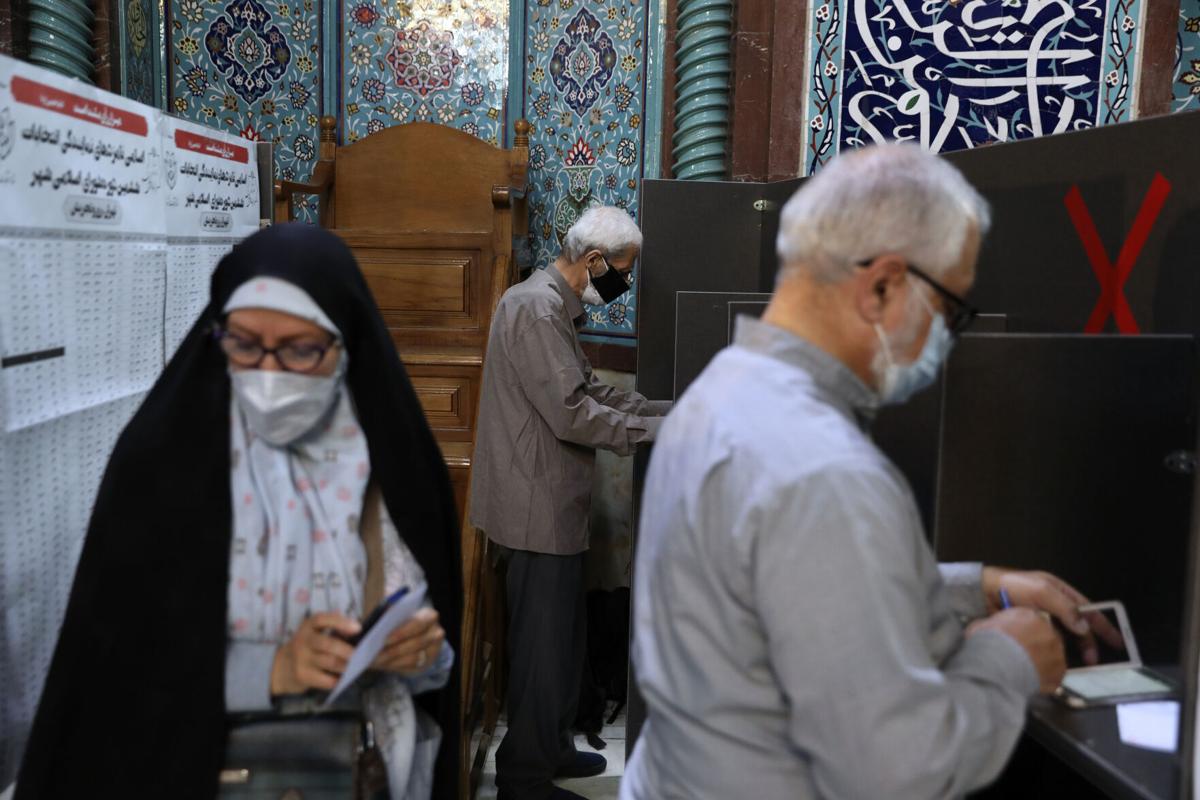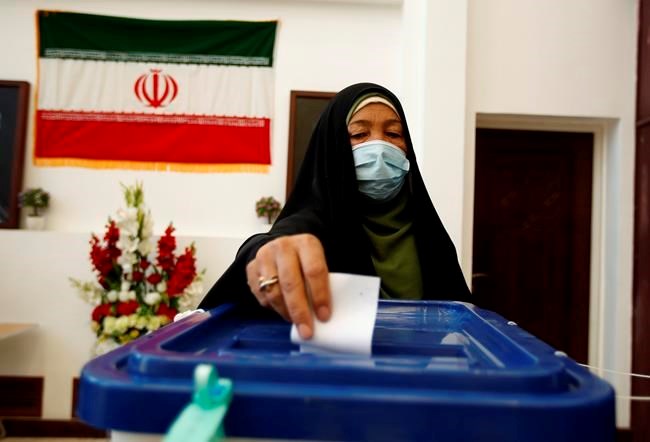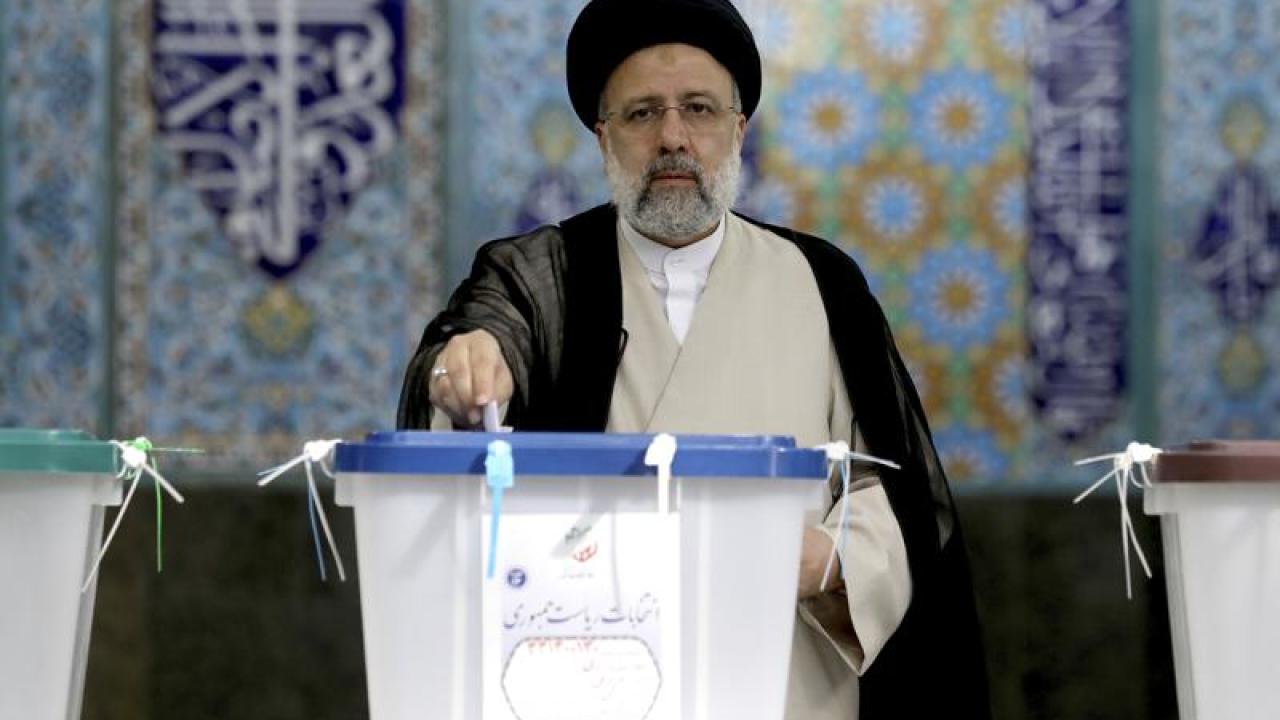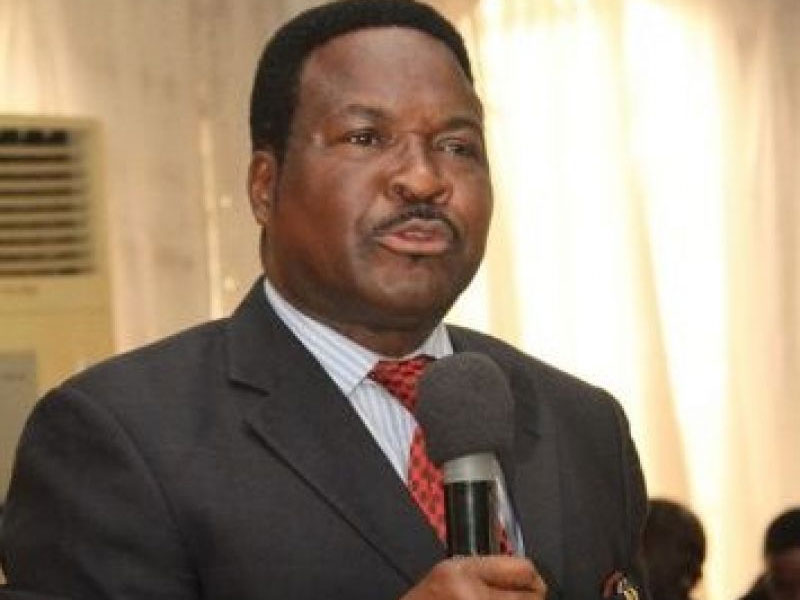Iranians voted Friday in a presidential election that a hard-line protege of Supreme Leader Ayatollah Ali Khamenei seemed likely to win, leading to low turnout fueled by apathy and calls for a boycott.
 Polls opened at 7 a.m. local time for the vote, which has seen widespread public apathy after a panel under Khamenei barred hundreds of candidates, including reformists and those aligned with Rouhani. Khamenei cast the ceremonial vote from Tehran, where he urged the public to take part.
Polls opened at 7 a.m. local time for the vote, which has seen widespread public apathy after a panel under Khamenei barred hundreds of candidates, including reformists and those aligned with Rouhani. Khamenei cast the ceremonial vote from Tehran, where he urged the public to take part.

“Through the participation of the people the country and the Islamic ruling system will win great points in the international arena, but the ones who benefit first are the people themselves,” Khamenei said. “Go ahead, choose and vote.”
But by mid-day, turnout appeared far lower than Iran’s last presidential election in 2017. State television offered tight shots of polling places, several of which seemed to have only a handful of voters in the election’s early hours. Those passing by several polling places in Tehran said they similarly saw few voters.
Opinion polling by state-linked organizations and analysts indicated that judiciary chief Ebrahim Raisi — who is already under U.S. sanctions — was the dominant front-runner in a field of just four candidates. Former Central Bank chief, Abdolnasser Hemmati, is running as the race’s moderate candidate but hasn’t inspired the same support as outgoing President Hassan Rouhani, who is term limited from seeking the office again.
State-linked opinion polling and analysts put hard-line judiciary chief Ebrahim Raisi as the dominant front-runner in a field of just four candidates. Former Central Bank chief, Abdolnasser Hemmati, is running as the race’s moderate candidate but hasn’t inspired the same support as outgoing President Hassan Rouhani, who is term limited from seeking the office again.
If elected, Raisi would be the first serving Iranian president sanctioned by the U.S. Government even before entering office over his involvement in the mass execution of political prisoners in 1988, as well as his time as the head of Iran’s internationally criticized judiciary — one of the world’s top executioners.
It also would firmly put hard-liners in control across the Iranian government as negotiations in Vienna continue over trying to save Tehran’s tattered nuclear deal with world powers, as it enriches uranium to the closest point yet to weapons-grade levels. Tensions remain high with both the U.S. and Israel, which is believed to have carried out a series of attacks targeting Iranian nuclear sites and assassinating the scientist who created its military atomic program decades earlier.




















